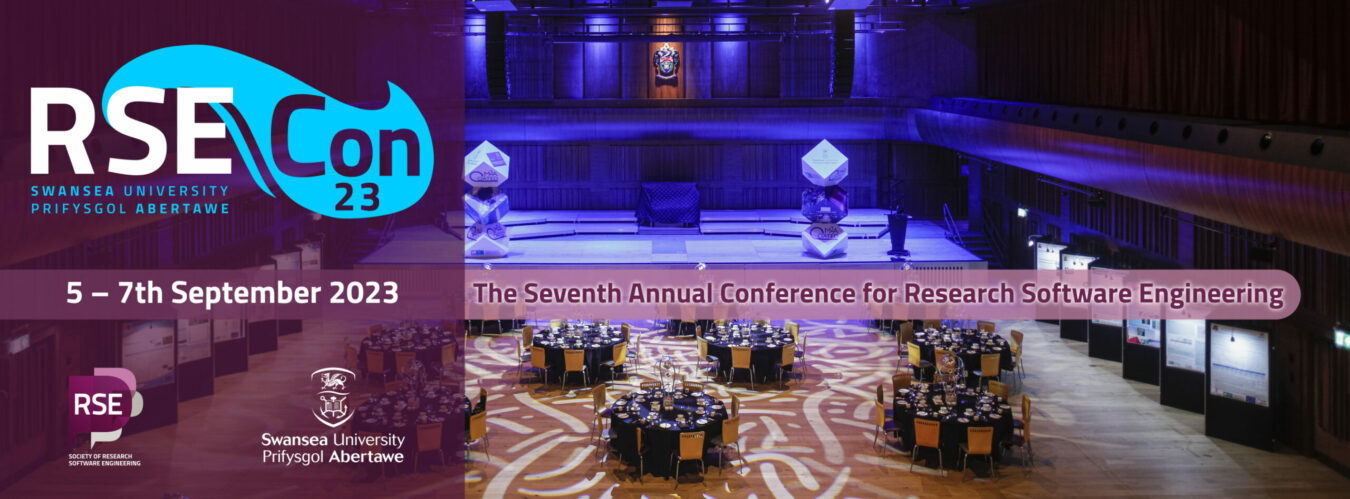Workshops are interactive sessions during which the audience, utilizing their own laptops, will try out a new technology or learn a new skill or technique under the guidance of the workshop presenter. Workshops may be a half day (180 minutes split either side of a break) or a quarter day (90 minutes).
The objective of a workshop is to raise awareness and develop skills of the audience about a topic, software tool, library etc. of relevance to the Research Software Engineering community. Ideally, workshops should provide enough detail to enable the audience to continue learning in their own time after the conference.
Note that for workshops with technical subject matter the audience, is expected to be able to participate using their own laptop. Limited non-technological resources (e.g. flip charts, marker pens) will also be available upon request.
Planning your submission
Workshops are focused on skills development. Our most successful workshops have provided engaging, hands-on experiences for attendees through a mix of lectures and practicals.
Topics for workshops could include:
- Teaching a new skill (e.g. how to create an R or Python package, writing a grant application, leadership skills)
- How to use a technology or service (e.g. how to set up and use continuous integration, how to use a cloud service)
- Demonstrating of a new tool (e.g. how to download and use a code coverage or documentation tool).
Consider the following details:
- Title: Make this informative and eye-catching as this will be used in the conference programme.
- Audience: Would your target audience be required to have any prerequisite skills/background knowledge e.g. knowledge of a particular language or software package?
- Outcomes: How will your attendees benefit from your session? What do you expect them to gain/learn?
- Hybrid support: At this time we are unable to commit to supporting remote participation at workshops. While we will continue to explore potential options for providing a hybrid workshop experience, the ability to support remote participation will not be a factor in selecting in-person workshops.
- Accessibility: We have a complete accessibility guideline set to ensure you make your walkthrough successful. Some key pieces to consider are:
- Have you thought about how accessible your session will be to a diverse conference audience (i.e. different skill sets, different work backgrounds)?
- Visually, have you considered the colors chosen for any material to be projected, as well as the shape and size of graphics and fonts?
You can also use automated accessibility checking tools to help ensure that you haven’t missed anything.
Resources and accessibility needs
If you require particular resources or have accessibility needs for your workshop (e.g. if you have particular requirements re. network bandwidth or firewall exceptions) then please indicate this in the submission.
Wider dissemination after the conference
All materials will be published on the conference website, and will be shared under the Creative Commons Attribution (CC BY) licence unless an alternative open licence is agreed in advance with the conference committee. Recordings, subtitles, slides, and any additional Q&A will also be made available via Zenodo.
Mentorship
We are happy to provide mentors who can help you put together your session. Mentors can help by reviewing draft slides, listening to a rehearsal, providing advice on making material engaging, Workshops etc. You can let us know if you would like a mentor if your submission is accepted.
Example Abstract
Title
Cooking FAIR research software with HERMES
Expertise level
Practitioner, Expert
Audience
The RSE community greatly benefits from easier and automated software publications to solve the chicken-and-egg problem of gaining credibility and visibility via citations requiring publications exist. Making these publications metadata rich is key to things like FAIR4RS and sustainability. Our workflow aims to provide missing key tooling for this. As the working groups cover multiple interests and skills, we invite RSEs from real projects, doc writers, curators of publication repositories and metadata experts to join us.
Technical plan
Attendees would need their laptop, installed with a ready to use GitHub account, Git, Python 3 and favorite IDE installation. Having Docker or other container technologies readily available would be a plus, but is not a requirement.
As the magic happens mostly in CI infrastructures, people might bring their own projects using the associated CI. We will also provide GitHub and/or GitLab spaces feasible for testing.
Attendees and helpers
The absolute max would be 20, excluding hosts and helpers. Currently we plan to have four or five member of the project at the conference. Helpers won’t be a requirement then. As the group topics are quite complex, recruiting helpers would be a challenge.
